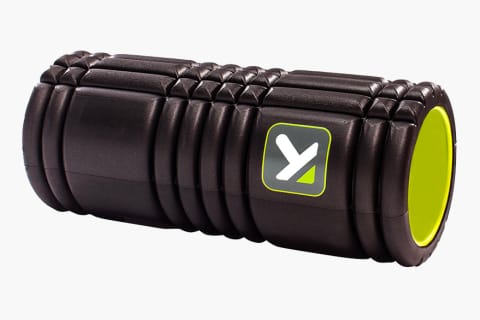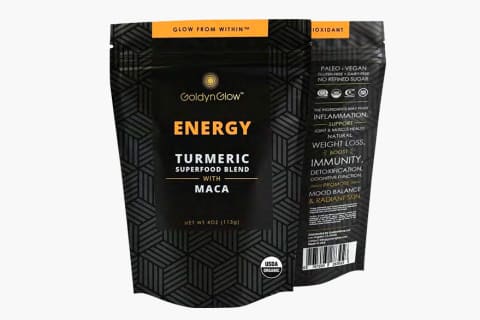Advertisement
I'm A HIIT Athlete — Here's How Recovery Rituals In My World Are Changing
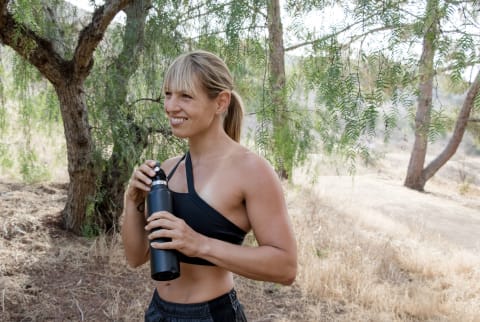
I'm a personal trainer, athlete, and a generally very active person. On any given day, you can find me sweating through a killer HIIT workout, working through challenging boxing drills, training new handstand skills, stand-up paddle-boarding with friends, or trying to wear out my high-energy dog, Rocket, on a hike.
But as much as I love to move, I'm also highly aware of just how important proper recovery is in order to continue to make progress and, even more importantly, to avoid injuries and fatigue from overtraining.
Because of that, I'm always looking out for the best recovery strategies so I can keep training hard day after day and doing what I love. But I take my recovery very seriously and don't do something just because it's trendy—I make sure there's real, science-backed evidence and tried-and-true tested results before making it a consistent part of my routine.
Here's the recovery routine that’s been working for me lately:
I stretch and foam roll daily.
I aim to do at least 10 to 15 minutes of light stretching and foam rolling on a daily basis, either immediately after my workout, or—if I don't have time—later in the evening when I'm relaxing and reading a book or watching TV. This helps to keep my muscles from getting overly tight, prevent DOMS (delayed onset muscle soreness), and keeps my body feeling flexible and mobile.
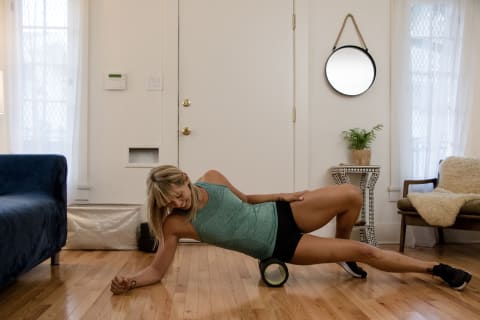
I take my recovery very seriously and don’t do something just because it’s trendy.
I prioritize sleep.
To optimize recovery, I try to get eight to nine hours of sleep every night, with very few exceptions. There's so much research coming out about the importance of sleep and why anything under seven hours a night just isn't enough. The more sleep you get, the more likely your body will have a chance to recover and function at optimal mental and physical levels the next day.
While many elite athletes will try to get as much as 10 hours of sleep a night during intense training times, that's just not doable for my busy schedule. Aiming for eight to nine hours is much more attainable, which usually means I go to bed around 10:30 p.m. and wake up at 6:30 or 7 a.m.
I use CBD oil at night.
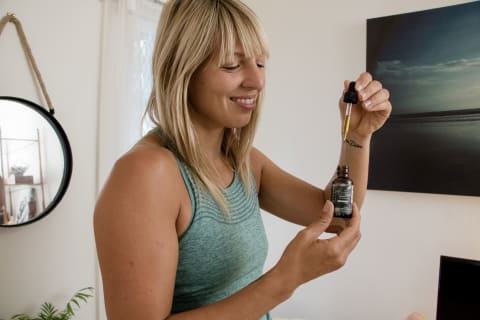
More and more people are turning to CBD oil for supporting their post-workout recovery and sounder sleep cycles, including—and especially—athletes. A quick online search for "CBD for athletes" will give you an idea of how athletes are tapping into it for pain relief in their training.
I first heard about CBD from my naturopathic doctor, who mentioned he'd been seeing some promising results from CBD in reducing exercise-induced inflammation. After that, I started to hear about athletes using it for supporting recovery and became intrigued to try it myself.
I've now been adding Charlotte's Web Original Formula CBD Oil to my regular recovery routine for about a month now, and I've noticed a positive difference in my general recovery levels from exercise. There are a lot of CBD brands out there these days, but I personally trust Charlotte's Web because I've found their U.S.-grown hemp to be consistently high-quality and also find the unique blend of phytocannabinoids, terpenes, flavonoids in each serving helpful in supporting recovery.
Using CBD oil over the past month, I've found that it has a cumulative effect—it has helped me to feel calmer, more equipped to handle everyday stressors, and better focused during my workouts and daily life. It's also been a big support in getting those eight to nine hours of sleep every night. And since taking it regularly, I've noticed a reduction in muscle soreness and cramps—I feel like I bounce back quicker the next day so I'm ready and focused for my next workout
I regularly include turmeric in my meals.
Turmeric has been shown to reduce inflammation levels, which helps to support recovery and help the body's immune system. It's a bit of an acquired taste, but I've learned to love adding it to stir-fries, rice bowls, and even smoothies. And now that the weather has cooled a bit, I'll often make a turmeric almond milk latte as a post-dinner treat. Post-recovery has never felt (or tasted) so good.

